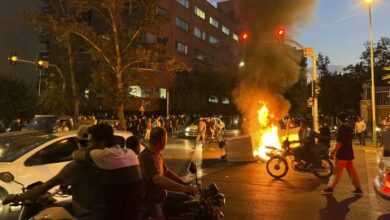The Journalists Syndicate has rejected accusations from Freedom and Justice Party MPs that state-owned newspapers are corrupt.
A statement issued by the syndicate’s head council on Wednesday said the attack reveals the party’s intention to curtail freedoms, especially freedom of expression.
The public dispute between the FJP and media outlets began Sunday when Fathy Shehab, who heads the Tourism, Media and Culture Committee of the upper house of Parliament, told reporters that national media institutions squander public funds and called for their heads to be immediately replaced.
Shura Council Speaker Ahmed Fahmy, an FJP member, told reporters the next day that state-owned newspapers were serving and defending the former Mubarak regime, which he said “should not resume after the 25 January revolution.”
The Shura Council is not responsible for directing the publishing or editorial policies of national newspapers, Fahmy said. However, he added, it does act as owner of these papers on behalf of the state and appoints their chairmen and editors-in-chief.
At a campaign rally for Brotherhood presidential candidate Mohamed Morsy in Beni Suef on Wednesday, Brotherhood Supreme Guide Mohamed Badie said “media professionals contributed to imprisoning [members of the Brotherhood]. They were unfair to us and fabricated the truth.”
Badie said state media needs to be purged so it can be made honest and only present accurate news.
However, the chairmen and editors-in-chief of state-owned newspapers rejected the Brotherhood criticisms as accusations without evidence.
Emad Eddin Hussein, a journalist with privately owned newspaper Al-Shorouk, said national newspapers function to endorse decisions made by the ruling military council or Cabinet, or to criticize the Muslim Brotherhood.
“There is an ongoing war between the Brotherhood and the journalistic community. The question is: Are the brothers right about the huge corruption inside these institutions?” Hussein wrote on Thursday.
Hussein said the corruption that has grown in most national newspapers as well as the Egyptian Radio and Television Union under Mubarak should be fixed.
“The simple question that needs an explanation is: Does changing the corrupt situation inside media institutions mean becoming affiliated to the brothers?” he wondered.




